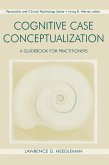Much has been written about the basic incompatibility of the dominant quantitative research model in psychotherapy and the qualitative preferences of the practitioner community providing psychotherapy. Researchers and clinicians are at odds over the most valuable type of knowledge needed: that emerging from quantitative, experimental research versus that from qualitative, case-based practice, respectively. Recently, a number of emerging research methods have attempted to bridge and integrate these two approaches. Case Studies within Psychotherapy Trials is one such effort and significantly furthers the synergy between them. The volume provides a comprehensive illustration of the "cases-within-trials" (CWT) model of research. Quantitative findings from four randomized clinical trials (RCT) are synthesized with qualitative and quantitative findings from systematic case studies of successful and unsuccessful clients representatively drawn from each RCT. The book opens with the history of dialectic and political controversy in psychotherapy research and recent initiatives to bridge the differing perspectives. The RCT and case study projects follow, each commented on by outside experts. In the final chapter the editors compare and contrast the separate projects and draw insightful, impactful conclusions. By bringing together quantitative, natural scientific perspectives on research and qualitative, interpretative understandings and strategies, the chapter authors demonstrate how practitioners can be meaningfully included in future psychotherapy research. This book will be of great interest to psychotherapy researchers and practitioners and those interested in research methods in the behavioral sciences more generally.
Dieser Download kann aus rechtlichen Gründen nur mit Rechnungsadresse in A, B, BG, CY, CZ, D, DK, EW, E, FIN, F, GR, HR, H, IRL, I, LT, L, LR, M, NL, PL, P, R, S, SLO, SK ausgeliefert werden.









